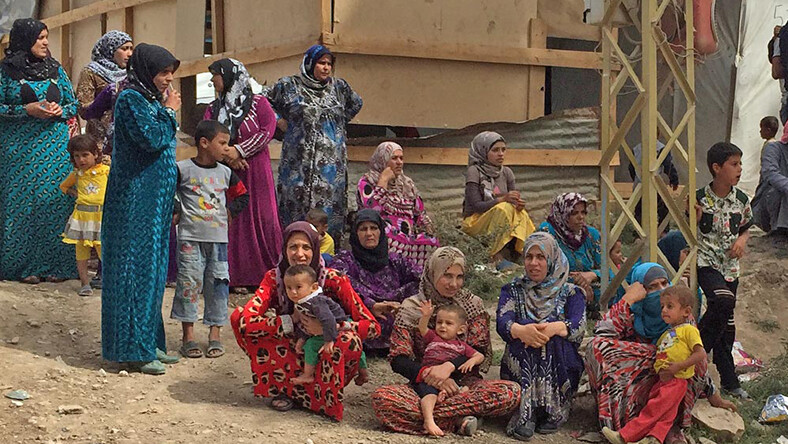I’m sitting on a thin mat on the hard, dusty ground, an hour east of Beirut. We’re in the middle of farmlands, just miles from the Syrian border. Beneath my mat is an ornate, yet filthy persian rug that stretches across the room. It’s hot...so hot that I can feel a bead of sweat dripping down my back. I look down at the small glass of tea in my hands, amber-colored and scalding hot. It is thick with sugar and was just made by the woman who now sits across from me. She kneels on the ground, her long robe gathered around her feet, hiding all but her hands and face.
I take a sip and as I look up from the glass, her voice comes back into focus. The Arabic language sounded harsh and guttural to me when I first arrived here in Lebanon a week ago with the PEACE Relief team, but now it sounds soft, and I know I’ll miss it when I eventually go home. She continues to speak as she gestures to the plastic tent stretched over our heads, and I glance at the interpreter.
The next day I spend several hours sitting with Muslim women, one by one, at the distribution center. They are refugees who have come to receive a 60-pound bag of food, but more than simply caring for their physical needs, we want to offer them spiritual care. Not all of them are comfortable with receiving prayer, but those who accept the prayer timidly come into the room and sit across from me. Each woman looks into my eyes as she shares her story. I am undone by what I hear.
Tears begin to roll down Amani's face as she continues, and the interpreter’s voice conveys my own shock as she translates these words: “She took medicine to induce an abortion, but only one of the babies died. She gave birth to a son, but he died shortly after birth because he became very ill. She says that she wanted a divorce, but her husband said that, if he gave her a divorce, she’d never see her three-year-old son again. So she went to a bridge so she could commit suicide. She was getting ready to throw herself off the bridge, but the soldiers came and dragged her away.”
The tragic thing about the refugee crisis is that these stories aren’t exceptional. They’re the norm. Official reports say there are 1.5 million displaced people in Lebanon, but locals in Beirut say it’s much closer to 2 million. And of those roughly 2 million, nearly half are children. There is a whole generation of children whose hope for the future is crumbling with each passing day in which they have no access to education and resources. They will be lost if we do not help them.
Before my trip, I was plagued with the question of effectiveness. I’m one woman. My journey to Lebanon doesn’t make a difference, does it? And then God brought this verse to my mind “Whenever you did one of these things to someone overlooked or ignored, that was me—you did it to me.” (Matthew 25:40)
